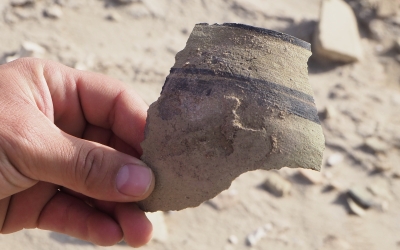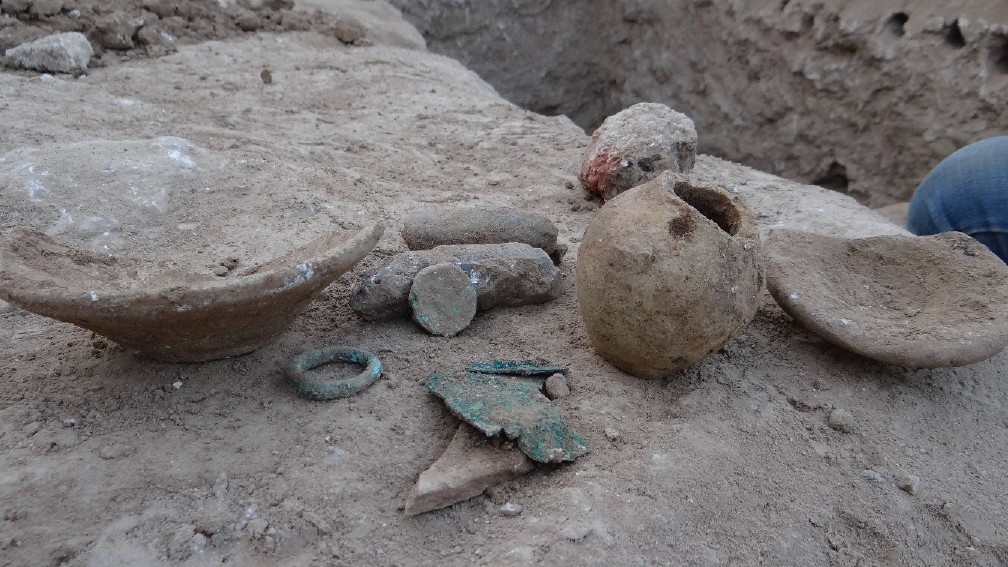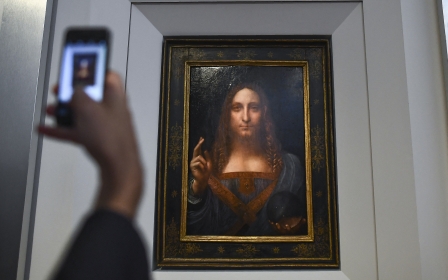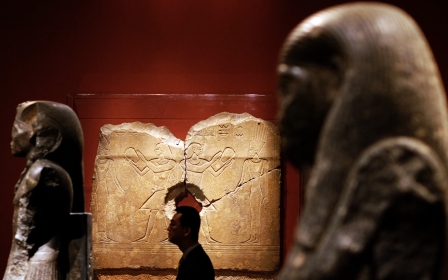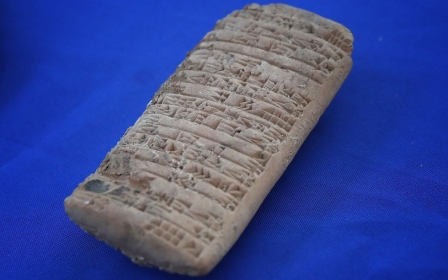Stolen antiquities trade fuels conflict in Middle East, report says
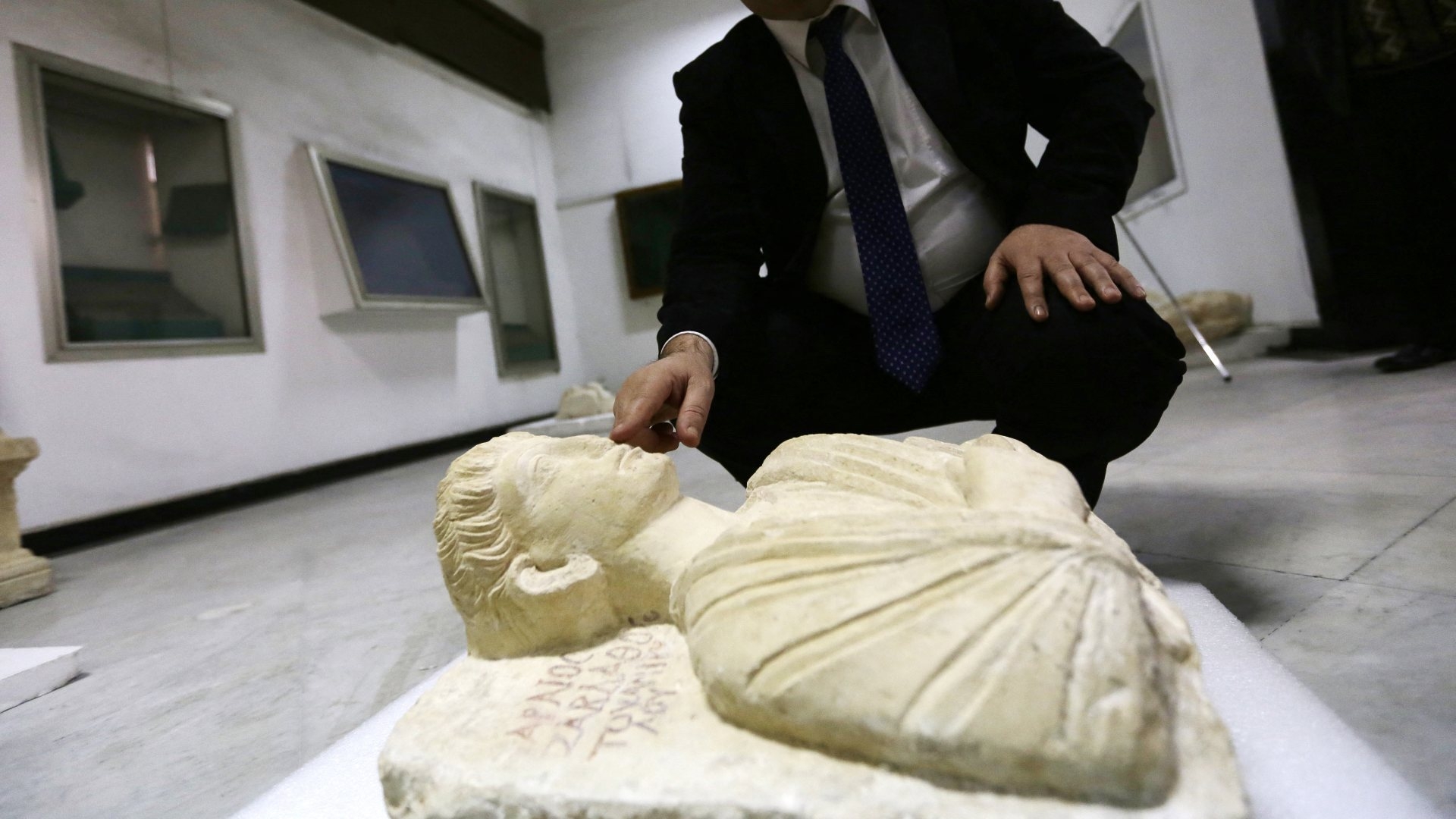
Hundreds of thousands of artefacts have been stolen from war-torn countries in the Middle East in the past decade, with funds from the sale of looted treasures used to fuel further conflict, a new report has said.
The Docket, an initiative of the Clooney Foundation for Justice, said on Wednesday it had tracked 300 cases in Libya, Yemen, Syria, and Iraq in which items were pillaged from museums, archaeological sites, universities, and religious locations.
The items were then smuggled through transit points and sold to the highest bidder.
"The looting of antiquities is often dismissed as a victimless crime, but it is far from that," Anya Neistat, legal director of The Docket, said in the report.
"The pillage of cultural artefacts is destructive physically and socially, and the sale of conflict antiquities enables armed groups to fund conflict and terrorism and other crimes against civilians."
According to researchers, at least 40,000 items were stolen from Syria, while nearly 150,000 items were looted from Yemen.
The report also found that an extensive number of artefacts were looted from northern Iraq by the Islamic State group (IS, also known as ISIS and ISIL), while in Libya the cultural property at a number of religious sites associated with Sufi communities was stolen.
In addition to the IS group, other groups involved in similar smuggling activities included al-Qaeda and Hayat Tahrir al-Sham.
"ISIS kidnapped me in 2014 - they found out I used to work on archeological sites, and they wanted me to serve as an expert and guide their excavations. Except I was an engineer, and thus didn't really know where the treasures are. But I had to pretend, to survive," a Syrian engineer, interviewed in Turkey in 2021, told the researchers.
"They took me to site in Syria, in Deir ez-Zor, for example, but also to Iraq, to Mosul. They had intermediaries in Turkey, who were connected, often through family members, to dealers in Europe."
The IS group gained global prominence in 2014, after taking over large swathes of Iraq and Syria, and the group made headlines for the destruction of cultural, heritage, and historical sites. What didn't make the headlines, however, was that many of the artefacts contained at those sites were captured by the militant group to sell.
"ISIL as we know was generally a very bureaucratic organisation," Neistat said during a briefing in Washington on Wednesday. "They had a special sub-department for antiquities."
Satellite imagery obtained by The Docket found a number of sites which had been excavated in Iraq and Syria, including the archaeological site of Tell Bia in the Raqqa governorate of northern Syria.
After being looted, the artefacts would then go on a multi-stop laundering journey before being sold.
If the items were from Iraq or Syria, they would go either through Turkey or Lebanon. If they were from Libya, they would be smuggled to Egypt and Tunisia.
Meanwhile, items stemming from Yemen would go through Saudi Arabia, Qatar, and the United Arab Emirates (UAE).
"The UAE, and particularly Dubai, appear to be an important transit point through which items originating in the Middle East and North Africa arrive to Europe and where laundering occurs," the report said.
"Freeports - essentially, tax-free warehouses created to temporarily retain manufactured goods - play an important role in the international trafficking of looted antiquities."
Middle East Eye reached out to the US embassies of Saudi Arabia, Qatar, the UAE, Turkey, Lebanon and Egypt, but did not receive any response by time of publication. The Tunisian embassy in Washington declined to comment on the report at the moment, saying it would get in touch with "competent authorities".
The Lebanese embassy in Washington referred MEE's request to Lebanon's Ministry of Foreign Affairs and Emigrants.
'As tainted as blood diamonds'
The report estimated the total value of the stolen items to be in the tens of millions of dollars, highlighting how much money can be made.
"Estimates of the income generated by armed groups vary, but most researchers agree that looted antiquities have become a multi-million-dollar source of financing for state and non-state actors," the report said.
"These terrorist organizations and armed groups then use the proceeds - tens of millions of dollars, according to the most conservative estimates - to further finance crimes against civilians and acts of terror."
According to Unesco, the illicit trade in cultural goods - of which antiquities trafficking is a part - is worth $10bn a year. A portion of these profits is known to be used to finance conflicts and global terrorism.
A curator of one archaeological site in Iraq told researchers that, when members of the IS group came to his home, they held him at gunpoint, asking him where the items he held were.
"I had to show them and they took everything. They said those were idolized and needed to be destroyed, but we know that instead they sold them to get more money to buy weapons," the curator said.
The report's authors called on authorities in the US, Europe, as well as the United Nations, to investigate these networks and transit routes, and provided evidence to law enforcement authorities.
Private traders in the West should also be punished for playing an active role in helping keep this trade running, and for providing funds to armed groups in the Middle East in exchange for stolen artefacts, said the Foundation.
"States should hold individuals and corporations accountable for their involvement in war crimes, crimes against humanity, and genocide, including when those crimes involve or affect cultural heritage," the report said.
"Unless conflict antiquities start being seen just as tainted as blood diamonds or the ivory trade or other forms of illegal trafficking, we don't have a feeling that you will know much about it, let alone how harmful it is," Neistat said during Wednesday's briefing.
This article is available in French on Middle East Eye French edition.
Middle East Eye propose une couverture et une analyse indépendantes et incomparables du Moyen-Orient, de l’Afrique du Nord et d’autres régions du monde. Pour en savoir plus sur la reprise de ce contenu et les frais qui s’appliquent, veuillez remplir ce formulaire [en anglais]. Pour en savoir plus sur MEE, cliquez ici [en anglais].


